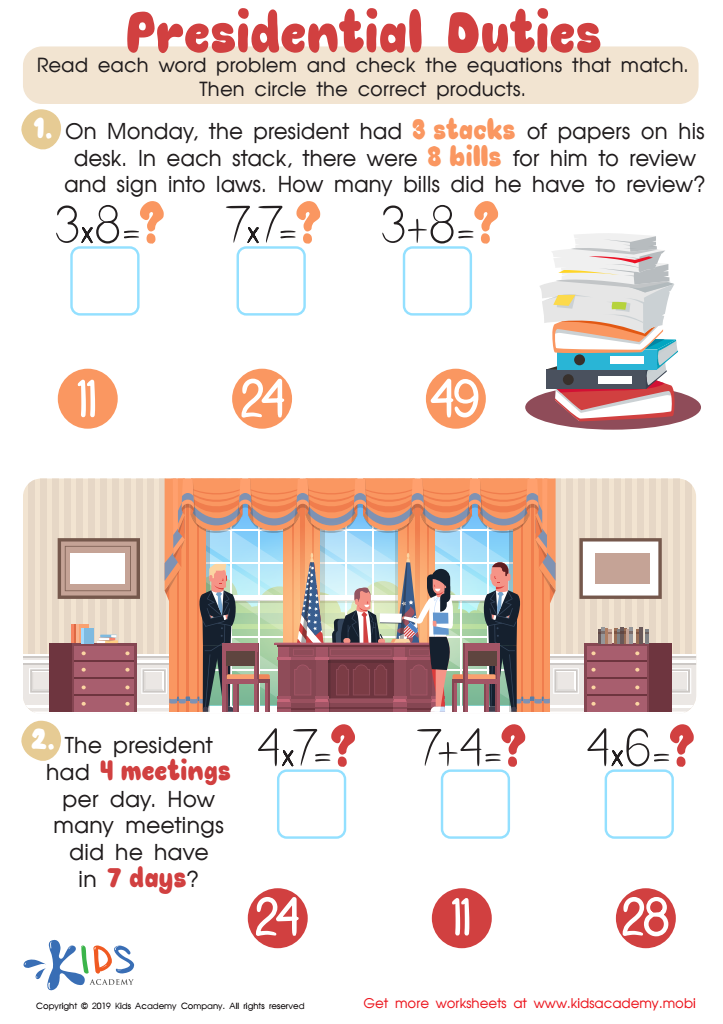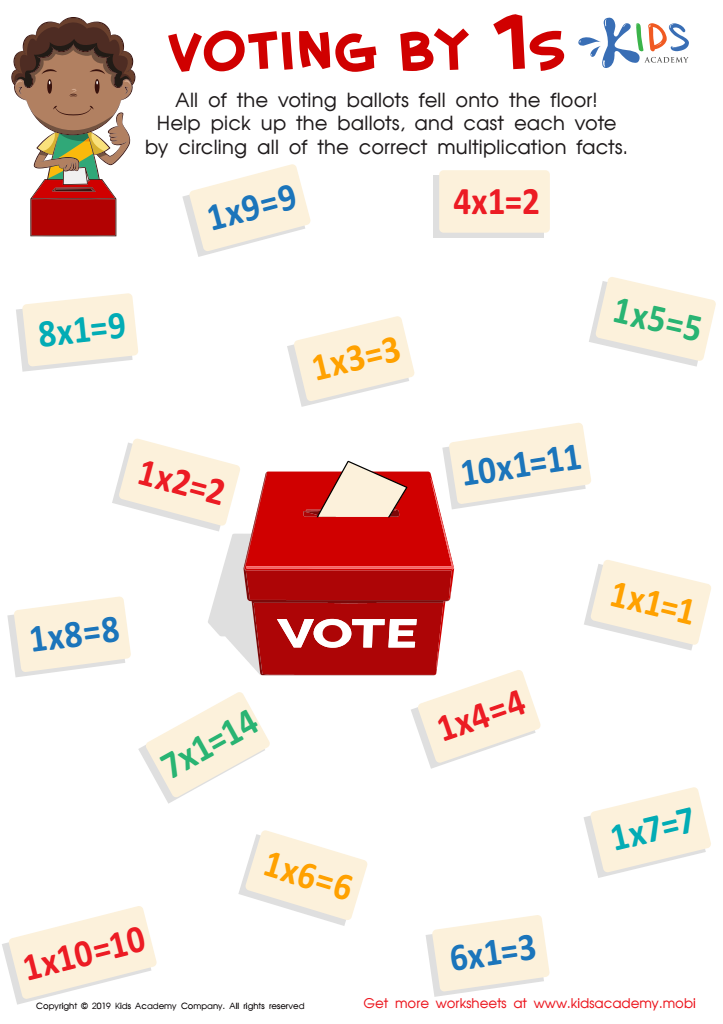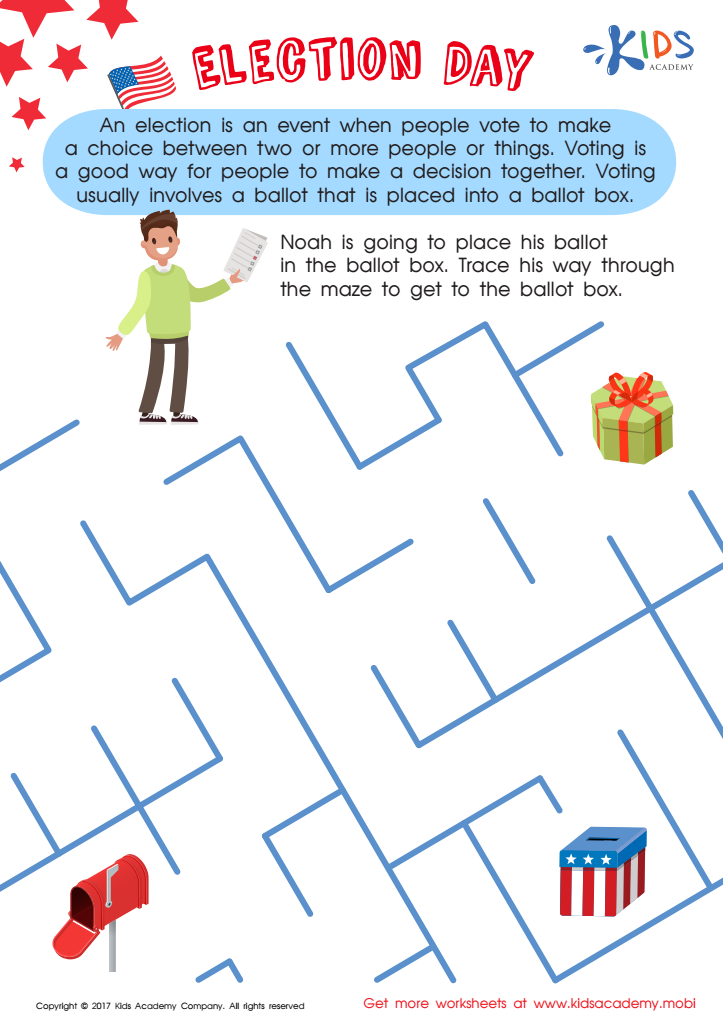Understanding democracy Social Studies Worksheets for Ages 3-8
3 filtered results
-
From - To
Welcome to our "Understanding Democracy" Social Studies Worksheets for ages 3-8! These engaging resources are designed to introduce young learners to the fundamental concepts of democracy in a fun and accessible way. Through interactive activities, colorful illustrations, and easy-to-follow instructions, children will explore the principles of voting, decision-making, and community involvement. Our worksheets encourage critical thinking and help develop a sense of civic responsibility while making learning enjoyable. Perfect for home and classroom use, this collection will inspire curiosity and empower young minds to understand the importance of participating in a democratic society. Start fostering informed citizens today!


Presidential Duties Worksheet


Voting by 1s Worksheet


Election Day Worksheet
Understanding democracy is vital for children ages 3-8 as it lays the foundation for their future participation in society. At this age, children are naturally curious and begin to form ideas about fairness, community, and cooperation. Teaching young children the principles of democracy helps them grasp the importance of values such as respect, inclusion, and responsibility.
By learning about democracy, children discover how their choices can affect others and understand the power of their voices. This foundational knowledge encourages critical thinking and promotes active participation in their communities. Furthermore, social studies at this age cultivates a sense of belonging and awareness of different cultures and perspectives, enabling children to appreciate diversity and become empathetic citizens.
Engaging children in democracy through age-appropriate discussions and activities empowers them to express their opinions and understand the importance of collaboration in group settings. Such awareness helps form conscientious future voters and community members.
Ultimately, parents and teachers play a critical role in guiding young children toward becoming informed, compassionate citizens, ready to navigate the complexities of the world and contribute positively to society.
 Assign to My Students
Assign to My Students





















